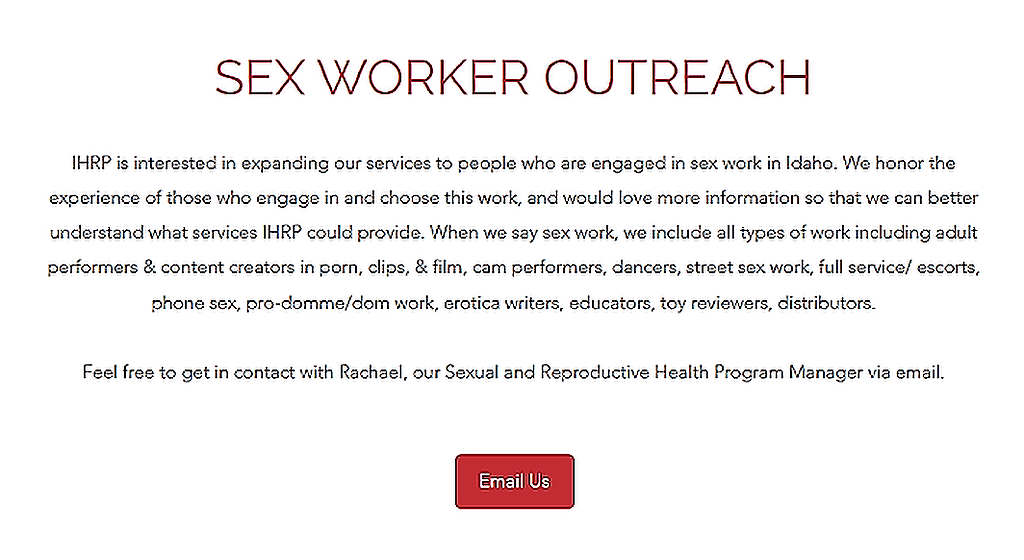


Idaho taxpayers will no longer fund illicit drug use through supporting so-called harm reduction programs, thanks to the efforts of the Idaho Freedom Foundation and conservative members of the Legislature. Tax dollars should not be used to subsidize drug abuse. House Bill 350 stipulates that more than $19 million in ongoing federal funds will now support first responders instead of being used to provide free needles and paraphernalia to drug users.
The governor’s original budget recommendation to the Legislature would have increased the amount of ongoing federal spending within the Idaho Department of Health and Welfare (IDHW) on State Opioid Response Grants. These grants would be paid out to local agencies and private groups to administer community programs — including harm reduction projects — to address the opioid crisis.
The passage of House Bill 350 rejects the governor’s recommendation by redirecting funds for harm reduction projects and needle exchanges to first responders. This great work discontinues funding for the program that, in similar forms, ruined states like California, Washington, Oregon and New York.
Harm reduction projects are a poignant example of how government “help” actually harms people and works to degrade society. Some studies suggest that these programs increase risky behavior, emergency room visits, and mortality related to opioid abuse — not make things better.
Harm reduction is marketed as a way to reduce the risks associated with injection-based drug abuse by providing users with drug paraphernalia, HIV and hepatitis C testing, clean needles, and naloxone. These projects first cropped-up in the Gem State in 2019, after House Bill 180 created the Syringe Needle Exchange Act to allow for private needle exchanges. These programs are regulated by the IDHW and currently receive a share of $11.2 million† in federal funding.
These programs are flawed because they fail to address drug addiction and instead work to facilitate safer injection-based drug abuse by limiting the reuse of needles and paraphernalia. The problem is that there is no such thing as “safe” drug abuse. The latest available data shows that Idahoans are much less likely to die from a hepatitis C infection or HIV than from a drug overdose. Each time someone injects illicit drugs, there’s a risk. Some users will dodge a bullet while others won’t be so lucky. All three modes of mortality — HIV, hepatitis C and overdose — could be prevented by treating the addiction itself. Yet, harm reduction programs fall short of this by only dwelling on a false sense of compassion that focuses on the effects of the problem while ignoring the cause.
In its latest report to the legislature, the IDHW boasts that the harm reduction program saved more than $31 million in lifetime health care costs by preventing bloodborne infections. These savings, however, are just a sliver of the total cost of opioid abuse. A 2018 report estimates that the national cost of the opioid epidemic is more than $217 billion when expressed in today’s dollars. Shockingly, approximately one-third of these costs — about $72 billion — are incurred by taxpayers to provide government services for users and their families. Worse yet, these astronomical figures don’t even account for the negative impacts of the pandemic.
Proponents also argue that harm reduction programs provide an avenue for encouraging participants to pursue treatment. The IDHW reports that providers made 1,511 referrals since the program started. But there is no data detailing how many participants actually received treatment, making it impossible to demonstrate the true effectiveness of the program.
Over two years, harm reduction programs dispensed more than 937,000 new syringes for up to 1,500 unique participants. This means that the average participant received approximately 625 new needles. This value is likely an underestimate because it assumes that participants from the first year are not counted again in the second year. It is likely that participants are long-term customers rather than those who are seeking to control or eliminate their addiction.
Recently, harm reduction programs have expanded beyond responding to drug abuse to use taxpayer funds to support the deterioration of the institution of the family. They frequently promote promiscuous sexual activity, “gender” health services, and sex work.
For example, the Idaho Harm Reduction Project, a Boise-based nonprofit, is one of the largest needle exchange programs in the state, receiving nearly $474,000 in taxpayer-funded subsidies last fiscal year. This organization not only provides needles and supplies to drug users, but it also gives needles to transgender individuals for hormone therapies, and it seeks to expand services for sex workers. In February, the organization took references to these programs off its website after outcry from legislators.

Opioid addiction leads to growing government dependence, broken families, a struggling workforce, and rising demand for health services. Harm reduction programs ignore this fact and perpetuate the detrimental effects of drug abuse by only addressing the more casual impacts of this dangerous behavior.
The Legislature’s decision to redirect funding from these programs is a major win for conservatives and the prosperity of Idahoans. The $19 million will no longer keep the problem going. Instead, it will support those working on the front lines to reduce the loss of life, restore families, and make our communities safer.
Though House Bill 350 is now law, this issue is not over. Harm reduction programs will continue to operate in our communities, with or without government support. The Legislature must take steps to repeal the Syringe Needle Exchange Act, ending these programs in Idaho. So long as this act remains in place, Idaho law would continue to condone these activities and offer legal avenues for using public funds to support these programs. Conservatives must work diligently to discourage the state from continuing down the path of social degradation that has caused people in California and elsewhere to flee to Idaho for a better life.
†These funds can be used for a variety of programs including treatment, harm reduction, and recovery support programs. More details can be found on page 2-76 of the 2023 Legislative Budget Book.

